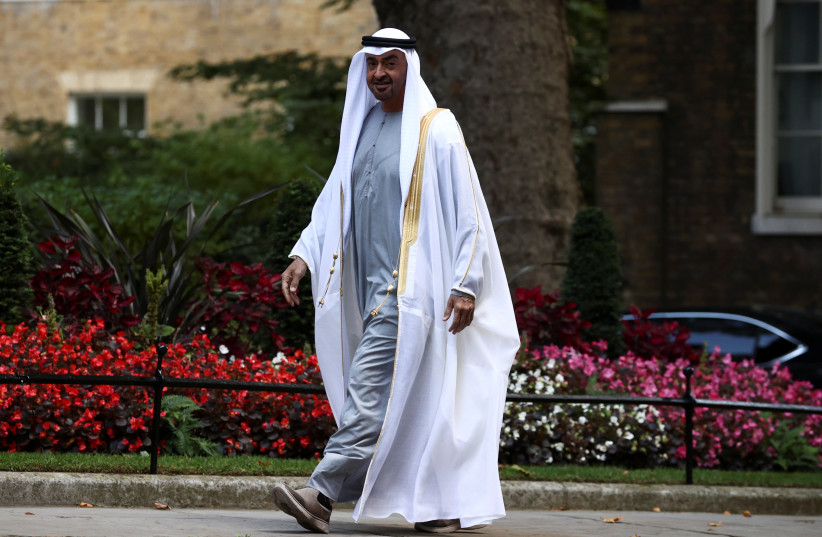Qatar’s foreign minister visited Iran on Thursday. It was not clear if the visit was linked to Iran talks in Vienna or US-Iran relations. Qatar is a close partner of the US, which has a military base in Qatar. Doha is also close to Iran and also has funneled money to Gaza where it enjoys amicable relations with Hamas.
Iranian Foreign Minister Hossein Amir-Abdollahian met his Qatari counterpart Mohammed bin Abdulrahman Al Thani. Photos were published by Iranian media. Iran International, a news website, noted, “Some domestic and foreign media interpreted the meeting as a possible Qatari mediation effort to facilitate direct US-Iran talks.”
Reuters noted, “Qatar’s top diplomat visited Iran on Thursday, state media in the two countries reported, days before Qatar’s ruling emir holds talks in Washington at a crucial time for efforts by Tehran and major powers to revive a 2015 nuclear pact.”
Iran’s Tasnim news said that the foreign minister of Qatar, who is also the deputy prime minister, visited Tehran but did not elaborate on the talks. It is possible Iranian media was waiting for official statements.
Al Jazeera, which is based in Doha, noted, “The upcoming visit also comes at a time when a new front in Yemen’s long-running war is forming. In recent weeks, Iran-aligned Houthi rebels launched several missiles towards the United Arab Emirates. The UAE is a member of a Saudi-led military coalition backing Yemen’s government.”
“We emphasized strengthening the friendship and cooperation between the Kurdistan Region and the UAE and discussed recent developments in the region,” Barzani wrote on Facebook.

It also noted that Iran’s foreign minister had visited Qatar recently. At the time, “they discussed the latest developments in Vienna, where negotiations are ongoing to restore the 2015 nuclear deal with world powers through lifting United States sanctions and scaling back Iran’s nuclear program,” the report said.
Qatar plays a kind of double game, pretending that its interest is merely de-escalation, while also trying to be friends with all sides. However, historically it has funneled support to extremists in the region. A close ally of Turkey, Qatar is also close to the Muslim Brotherhood. It uses its powerful media, such as Al Jazeera, to critique countries and regimes it disagrees with, while praising those it supports.
The question for countries in the region and the US is whether Qatar’s double-game can also actually bring real results or if the talk of de-escalation is also a way to position Qatar as the key to every conflict so as to increase its power and profit. Qatar, for instance, hosted the Taliban for years and likely helped bring them back to power. It then ended up as a key conduit to Kabul for media and others, meaning that it holds the keys to Kabul in a sense.
This is how it operates with the Gaza Strip as well, sending funds to Gaza so it can be the key to heating up tensions or turning them down. This means its interests are not motivated by charity, it always benefits.
Saudi Arabia, the UAE and other countries cut relations with Qatar during the Trump era. When Trump was leaving office the Gulf crisis ended and those countries tried to patch things up with Doha. It’s entirely possible that Qatar looks with quiet approval on the recent Iran-backed Houthi tensions with the UAE. The lack of clarity as to Qatar’s actual views is the issue here.
During the Gulf crisis when Qatar felt isolated, it invited pro-Israel voices to Doha and pushed stories about its interest in discussions with Israel and how it could help with discussions with Hamas and getting back captives that Hamas is holding in Gaza. This involves the fact that Hamas is holding Avera Mengistu and Hisham al-Sayed hostage and holding the bodies of IDF soldiers Hadar Goldin and Oron Shaul.
Despite Qatar’s attempt to bring pro-Israel voices to Doha, no progress was made with Hamas. It remains to be seen if the talks in Tehran might lead to some moves in Vienna.
